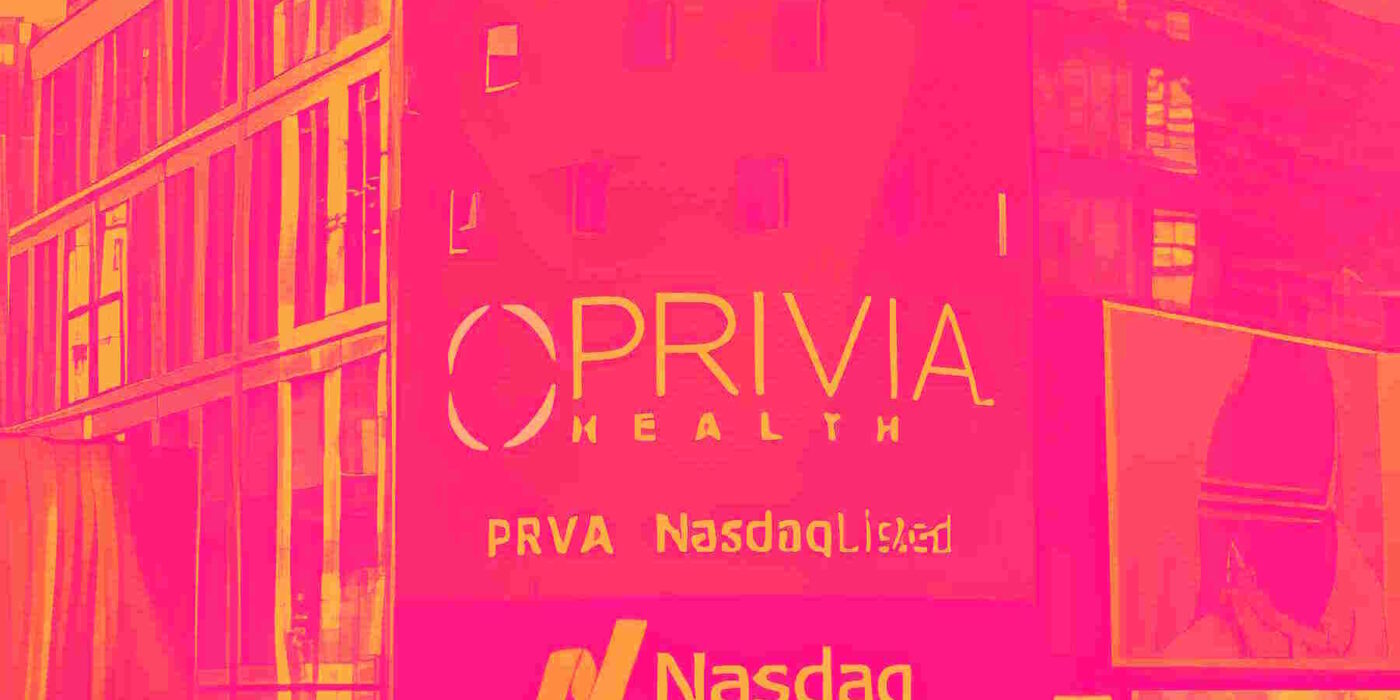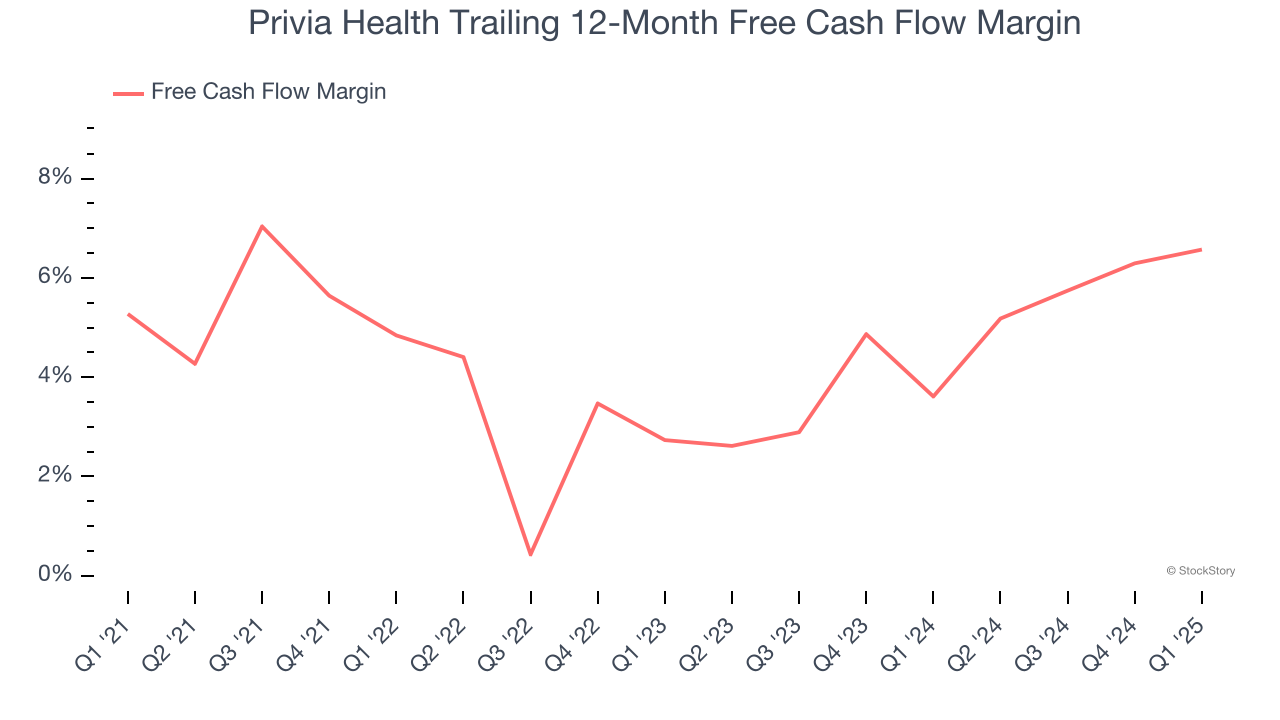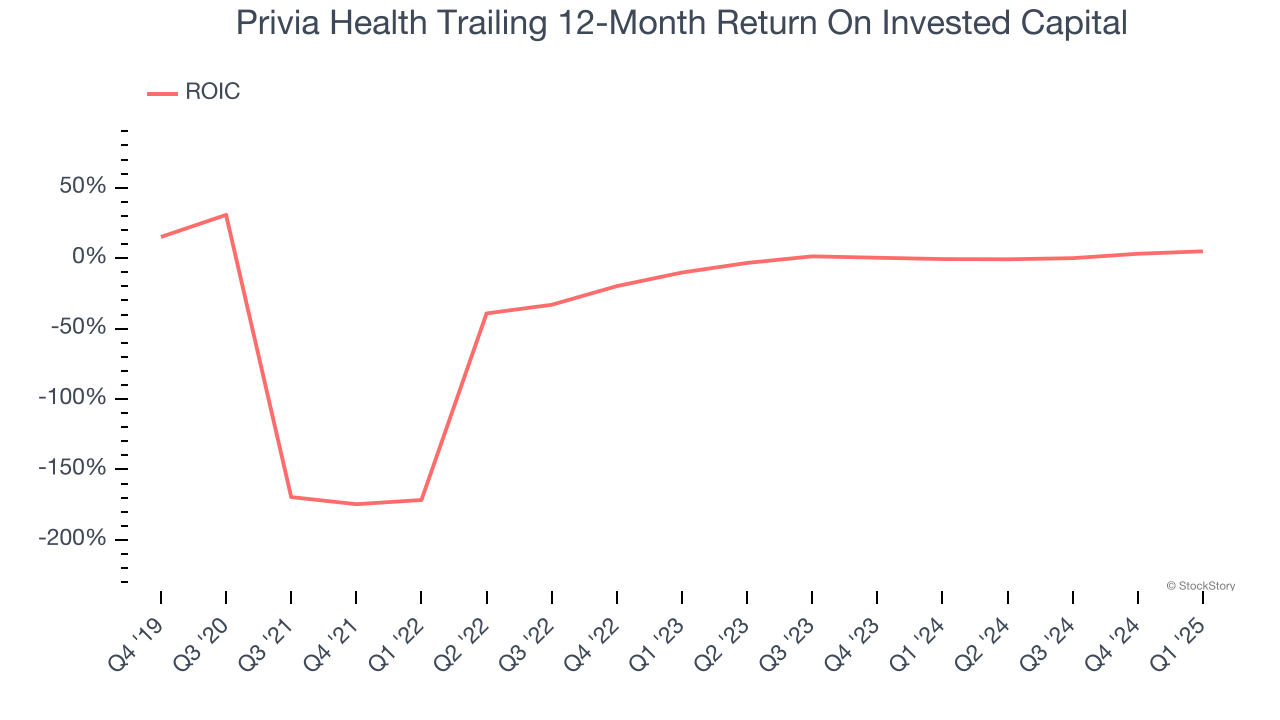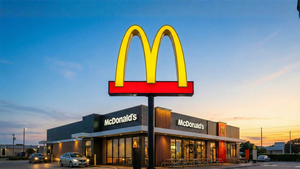
Over the past six months, Privia Health’s stock price fell to $19.75. Shareholders have lost 13.6% of their capital, which is disappointing considering the S&P 500 has climbed by 5.8%. This may have investors wondering how to approach the situation.
Is there a buying opportunity in Privia Health, or does it present a risk to your portfolio? See what our analysts have to say in our full research report, it’s free.
Why Is Privia Health Not Exciting?
Even though the stock has become cheaper, we're sitting this one out for now. Here are three reasons why PRVA doesn't excite us and a stock we'd rather own.
1. Fewer Distribution Channels Limit its Ceiling
Larger companies benefit from economies of scale, where fixed costs like infrastructure, technology, and administration are spread over a higher volume of goods or services, reducing the cost per unit. Scale can also lead to bargaining power with suppliers, greater brand recognition, and more investment firepower. A virtuous cycle can ensue if a scaled company plays its cards right.
With just $1.80 billion in revenue over the past 12 months, Privia Health is a small company in an industry where scale matters. This makes it difficult to build trust with customers because healthcare is heavily regulated, complex, and resource-intensive.
2. Mediocre Free Cash Flow Margin Limits Reinvestment Potential
If you’ve followed StockStory for a while, you know we emphasize free cash flow. Why, you ask? We believe that in the end, cash is king, and you can’t use accounting profits to pay the bills.
Privia Health has shown mediocre cash profitability over the last five years, giving the company limited opportunities to return capital to shareholders. Its free cash flow margin averaged 4.6%, subpar for a healthcare business.

3. Previous Growth Initiatives Have Lost Money
Growth gives us insight into a company’s long-term potential, but how capital-efficient was that growth? A company’s ROIC explains this by showing how much operating profit it makes compared to the money it has raised (debt and equity).
Privia Health’s five-year average ROIC was negative 2%, meaning management lost money while trying to expand the business. Investors are likely hoping for a change soon.

Final Judgment
Privia Health isn’t a terrible business, but it doesn’t pass our quality test. Following the recent decline, the stock trades at 23.1× forward P/E (or $19.75 per share). This multiple tells us a lot of good news is priced in - we think there are better opportunities elsewhere. Let us point you toward one of our top digital advertising picks.
Stocks We Like More Than Privia Health
Donald Trump’s April 2024 "Liberation Day" tariffs sent markets into a tailspin, but stocks have since rebounded strongly, proving that knee-jerk reactions often create the best buying opportunities.
The smart money is already positioning for the next leg up. Don’t miss out on the recovery - check out our Top 9 Market-Beating Stocks. This is a curated list of our High Quality stocks that have generated a market-beating return of 183% over the last five years (as of March 31st 2025).
Stocks that made our list in 2020 include now familiar names such as Nvidia (+1,545% between March 2020 and March 2025) as well as under-the-radar businesses like the once-small-cap company Comfort Systems (+782% five-year return). Find your next big winner with StockStory today.
StockStory is growing and hiring equity analyst and marketing roles. Are you a 0 to 1 builder passionate about the markets and AI? See the open roles here.






